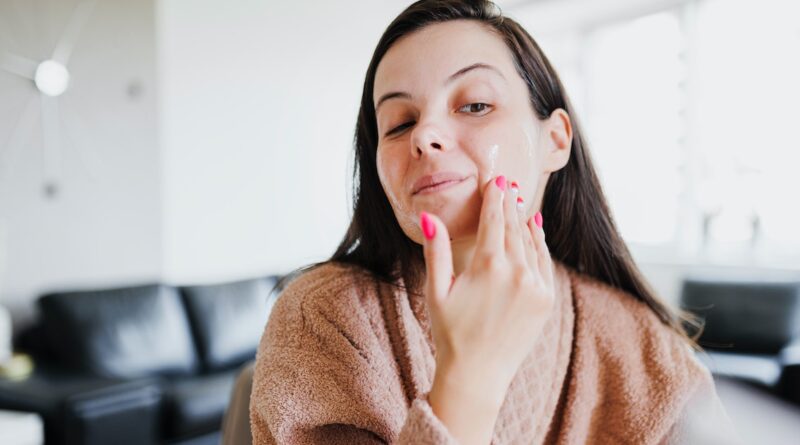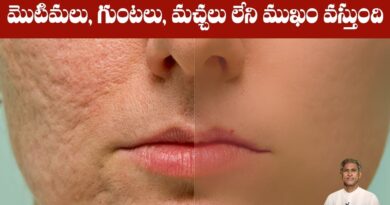Understanding the Different Types of Blemishes and How to Treat Them
Understanding the Different Types of Blemishes and How to Treat Them
Blemishes are a common skin concern that many people deal with at some point in their lives. They can be frustrating and difficult to manage, but with the right information and treatment, you can improve the appearance of your skin and reduce the frequency of blemishes. In this article, we will discuss the different types of blemishes and how to treat them effectively.
Types of Blemishes
Acne Vulgaris
Acne is a common skin condition that occurs when hair follicles become clogged with oil and dead skin cells. It can appear as whiteheads, blackheads, pustules, or cysts, and is often accompanied by redness and inflammation. Acne can occur on the face, chest, back, and shoulders, and is influenced by factors such as hormones, genetics, and lifestyle.
Treatment: Treatment for acne can include over-the-counter products containing ingredients such as benzoyl peroxide, salicylic acid, and retinoids. In more severe cases, prescription medications such as oral antibiotics, hormonal therapy, or isotretinoin may be necessary. It is important to establish a good skincare routine and avoid picking or squeezing blemishes, as this can worsen inflammation and lead to scarring.
Rosacea
Rosacea is a chronic skin condition that causes redness, swelling, and visible blood vessels on the face. It can also cause pustules and thickening of the skin, and may be triggered by factors such as sun exposure, spicy foods, alcohol, and stress.
Treatment: Treatment for rosacea may include topical medications such as metronidazole or azelaic acid to reduce redness and inflammation. Oral medications such as antibiotics or isotretinoin may also be prescribed in severe cases. Additionally, avoiding triggers and using gentle skincare products can help manage symptoms.
Hyperpigmentation
Hyperpigmentation refers to dark patches or spots on the skin caused by an overproduction of melanin. It can be caused by factors such as sun exposure, hormonal changes, and inflammation, and can appear as freckles, sunspots, melasma, or post-inflammatory hyperpigmentation.
Treatment: Treatment for hyperpigmentation may include topical products containing ingredients such as hydroquinone, niacinamide, retinoids, or vitamin C to lighten dark spots and even out skin tone. Procedures such as chemical peels, microdermabrasion, or laser therapy may also be recommended for more stubborn pigmentation.
Eczema
Eczema, also known as atopic dermatitis, is a chronic skin condition that causes red, itchy, and inflamed patches on the skin. It is often triggered by factors such as irritants, allergens, dry skin, or stress.
Treatment: Treatment for eczema may include moisturizing the skin regularly with emollients, using topical corticosteroids to reduce inflammation, and avoiding triggers such as harsh chemicals and certain fabrics. In severe cases, oral medications such as antihistamines or immunosuppressants may be prescribed.
Frequently Asked Questions
1. What causes blemishes?
Blemishes can be caused by a variety of factors, including hormonal changes, genetics, stress, lifestyle choices, and environmental factors. Common causes of blemishes include clogged pores, inflammation, and overproduction of melanin.
2. How can I prevent blemishes?
Preventing blemishes involves maintaining a good skincare routine, avoiding triggers such as certain foods and products, protecting the skin from sun damage, and managing stress levels. It is also important to not pick or squeeze blemishes, as this can lead to scarring and further inflammation.
3. Can blemishes be treated at home?
Many blemishes can be treated at home with over-the-counter products containing ingredients such as benzoyl peroxide, salicylic acid, or retinoids. However, if blemishes persist or worsen, it is important to seek help from a dermatologist who can provide a more personalized treatment plan.
4. Are there any natural remedies for treating blemishes?
Some natural ingredients such as tea tree oil, aloe vera, and green tea extract have been shown to have anti-inflammatory and antimicrobial properties that can help improve the appearance of blemishes. However, it is important to use natural remedies with caution and consult a healthcare professional before trying them, as they may not be suitable for all skin types.
5. When should I see a dermatologist for my blemishes?
It is important to see a dermatologist if you have persistent or severe blemishes that do not respond to over-the-counter treatments, as this may indicate an underlying skin condition that requires professional attention. Additionally, if you experience unusual symptoms such as sudden changes in pigmentation, extreme itching, or new growths on the skin, it is important to seek medical advice.
In conclusion, blemishes are a common skin concern that can be caused by a variety of factors and can manifest in different ways, such as acne, rosacea, hyperpigmentation, and eczema. While they can be frustrating to deal with, there are effective treatments available that can help improve the appearance of the skin and reduce the frequency of blemishes. By understanding the type of blemish you have and following a personalized treatment plan, you can achieve clearer and healthier-looking skin.



